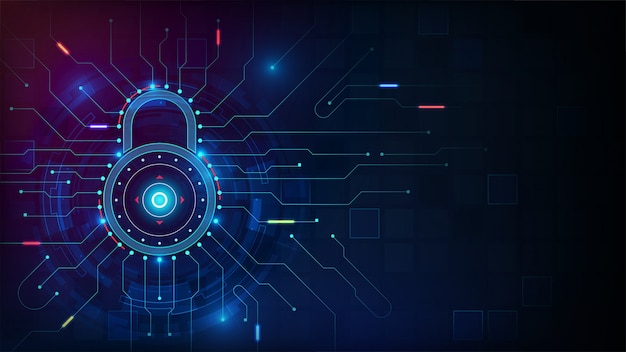Online Security Tips for Individuals: Protecting Your Personal Data Safe
Online Security Tips for Individuals: Protecting Your Personal Data Safe
Blog Article

During the current digital age, our lives are increasingly intertwined with technology like never before. From social media accounts to online banking, we depend greatly on the internet for our everyday tasks. However, this convenience comes with risks, as cyber threats continue to evolve and become increasingly advanced. Protecting your personal data should be a priority for anyone navigating the digital world, and understanding the basics of cybersecurity is a crucial step in safeguarding your information.
Understanding how to defend against potential threats can make a significant difference in your online safety. Whether you are a tech-savvy individual or someone who mainly uses the internet for browsing and shopping, being proactive about your cybersecurity can help avert data breaches and identity theft. In this article, we will explore practical tips and practices that anyone can adopt to enhance their cybersecurity and keep their personal information safe.
Grasping Digital Threats
In today's digital age, people face a broad spectrum of cyber threats that can jeopardize their private data and privacy. Cyber threats encompass various harmful activities, for example hacking, phishing, ransomware, and identity theft. Understanding these threats is vital for implementing effective security measures. Cybercriminals persistently develop new tactics to exploit vulnerabilities, making it necessary for individuals to stay informed and proactive in protecting their information.
Book Now
Phishing attacks are one of the most prevalent forms of cyber threats, where attackers use deceptive emails or messages to fool individuals into disclosing confidential information, such as passwords or financial details. These attacks often look legitimate, making it difficult for unsuspecting users to detect the danger. Awareness of these tactics and vigilance when interacting with emails or links can significantly reduce the risk of being tricked by such scams.
Another pressing concern is ransomware, a type of malware that locks files on a victim's device and demands money for their release. This form of attack can disturb individual and professional life, causing major data loss and financial strain. Keeping regular backups and maintaining updated security software are essential strategies to mitigate the risk of ransomware attacks. Understanding the various forms of cyber threats enables individuals to more successfully protect their personal data against the ever-evolving landscape of cybercrime.
Recommendations for Online Safety
To improve your online safety, creating strong, distinct passwords for your accounts is essential. Avoid using easily guessable information such as dates of birth or names. Instead, choose a mix of capital and lowercase letters, digits, and special characters that are minimum of twelve characters long. Employing a password manager can help create and save these complex passwords in a protected manner, ensuring you stay protected across different platforms.
Consistently refreshing your software and applications is an additional vital practice. Software developers frequently release updates to resolve security vulnerabilities and improve performance. By maintaining your operating system, browsers, and other applications up to date, you greatly reduce the risk of becoming a target of cyberattacks that exploit outdated systems. Turn on automatic updates when feasible to ensure you always have the latest protection.
Be cautious when distributing personal information online, particularly on social media. Familiarize yourself with the privacy settings of your accounts and minimize the amount of information available to the public. Before posting details or clicking on links, evaluate the source and the potential risks involved. Fraudulent schemes often masquerade as legitimate communications, so maintaining a healthy skepticism can safeguard your personal data from being harmed.
Safeguarding Your Private Devices
Maintaining your private devices secure is essential in today's digital world. Start by making sure that you use robust, distinct passwords for all your accounts. It is wise to activate two-factor authentication wherever possible to offer an additional layer of protection. Consistently updating your devices and applications will help protect against the latest vulnerabilities and threats. Configure your devices to update automatically if possible, so you won't miss important security patches.
Then, be cautious when connecting to public Wi-Fi networks. Public networks can be unsafe and make it easy for hackers to access your data. Use a virtual private network (VPN) when you need to connect to these networks, as it encrypts your internet connection and keeps your information confidential. Steer clear of accessing confidential information, like online banking, when using public Wi-Fi to minimize risk vulnerability.
Lastly, install reliable security software on your devices. This includes antivirus and anti-malware programs, which can help detect and eliminate threats before they cause harm. Regularly scan your devices and ensure that your security software is current. Educate yourself on common fraud techniques and avoid tapping on suspicious links or obtaining questionable attachments. By taking these steps, you can greatly enhance the security of your personal devices and keep your information protected from cyber threats.
Report this page